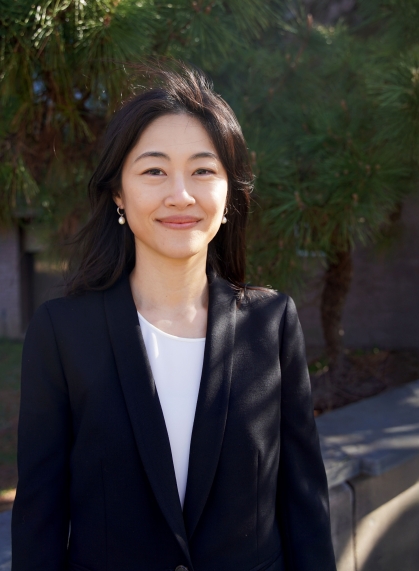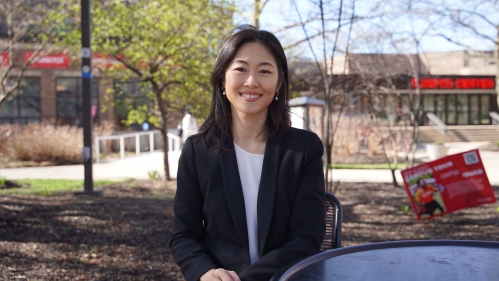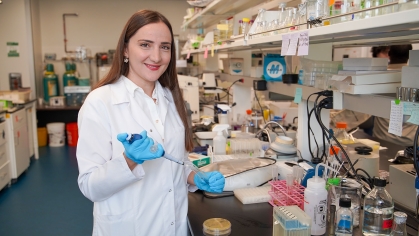Amid the callous clutter of today’s world, one may be hard pressed to find tangible sources of compassion and kindness. The Compassion and Well-Being Lab at Rutgers–Camden, led by Assistant Professor of Psychology Yoona Kang and an interdisciplinary team of graduate researchers, is working to change that.
Having studied the neuroscience of compassion, Kang has created a new mobile app to measure, test, and encourage the spread of kindness in both digital spaces and everyday life.
“I believe technology offers a real opportunity for compassion to thrive,” Kang said. “In the past, interventions were limited to small groups, like inviting 100 people to the lab. But now, we can spread these efforts globally and create small yet impactful changes in large populations. Our goal is to normalize compassion by demonstrating its presence in everyday lives and providing opportunities for people to express compassion at scale.”
Kang cultivated her own compassion meditation practice while studying cognitive psychology at Yale University. “Compassion and loving-kindness meditations involve making well-wishes to different groups of people,” she said. “You begin with people you already care about and gradually expand your circle of care to include acquaintances, strangers, and eventually, all beings. Practicing this type of meditation without expecting anything in return can be transformative and deeply liberating.”

Kang first explored the nature of compassion by looking at the brain. Using functional magnetic resonance imaging (fMRI), she discovered that the experience compassion involves at least three areas of the brain: People who experience compassion tended to show lower responses within the brain’s threat circuit, and greater activity within the brain’s reward and perspective systems.
The professor sought to apply what she had learned to an outlet where compassion could grow in the real world. The result is a mobile-based platform called Daily Compassion, an evidence-based app that delivers personalized meditation sessions.
Each day, users have an opportunity to send well wishes to people they already know and those they don’t, anonymously — an intentional feature designed by Kang’s team.
“There's a sense of non-reciprocity, which gives us a quantifiable metric of unconditional kindness,” Kang said. “This feature also allows us to test, using a social network analysis, whether and how compassion spreads in social networks. Results can inform effective strategies for optimally spreading compassion .”
In a testing phase, Kang’s team enrolled 400 people in a 21-day research intervention using Daily Compassion, with the goal of measuring the app’s impact on the randomized control panel’s well-being; results from that study are forthcoming.
Research on compassion has come a long way. Kang said that her work initially met resistance from some parts of the scientific community.
“People often view compassion as a soft concept that cannot be tested in a rigorous way,” Kang said. “But numerous rigorous scientific studies, including many neuroimaging studies, support that compassion is a quantifiable and testable human experience; it is ubiquitous, measurable, and can be grown and spread.”
The professor noticed an uptick of interest in and recognition of her line of work after the pandemic. Kang’s research expertise has now made her highly sought after; this spring, a research and development arm of Google invited her to speak about compassion and well-being.
“Beyond the relatively small field of compassion research in technology, organizations, and health care, there is a growing recognition of compassion’s importance across many sectors,” Kang said. “I'm deeply grateful for this shift, and I am committed to helping advance the science and practice of compassion to make real-world changes.”



